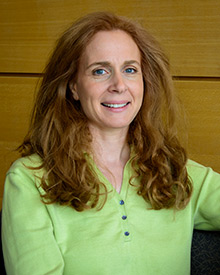Professor Sharon O’Sullivan has received a School of Management Indigenous Research Support Grant to gain insight into Indigenous reconciliation through social innovation. She hopes to define the factors through which intercultural situated learning, namely engaging in community-based informal learning practices, helps to inspire social innovations for Indigenous communities. Professor O’Sullivan will investigate this relationship by considering how and why situated learning factors may facilitate or hinder positive intercultural contact experiences.
Professor O’Sullivan will be working primarily with Indigenous Clean Energy (ICE) and its organizational partners, which include public and private sector energy, utility, and consulting organizations, public service departments, and non-profits involved in the green sector. Through this affiliation, she aims to interview at least 30 participants in order to discover (1) the antecedent conditions that produce positive inter-group relations and (2) the features of those inter-group contact experiences that encourage activism for social innovation. Some of her specific social innovation research questions include whether the involvement of ICE’s organizational partners in the ICE network has raised their appreciation for the overall importance of full Indigenous engagement or influenced their intentions to proactively work toward inclusion (beyond their own organizations).
What will the research contribute?
Professor O’Sullivan’s primary goal is to determine how to maximize the positive social impact of intercultural contact from an organizational and public policy perspective. Through her research, Professor O’Sullivan ultimately aims to promote both environmental sustainability and the inclusion of Indigenous peoples’ traditional priorities.

Sharon L. O'Sullivan specializes in cross-cultural communication for knowledge exchange and expatriate adjustment, power and diversity/inclusion issues in formal training and career development, and situated learning alliances for environmental change. Over the course of her career, she has collaborated with a variety of tri-sector organizations, including Canadian Feed the Children, Oxfam Canada, CARE Canada, the Canadian Food Inspection Agency, the Institute of Public Administration of Canada, and the Government of Canada's Diversity and Inclusion Joint Union-Management task force. Learn more about Sharon O'Sullivan's research.











